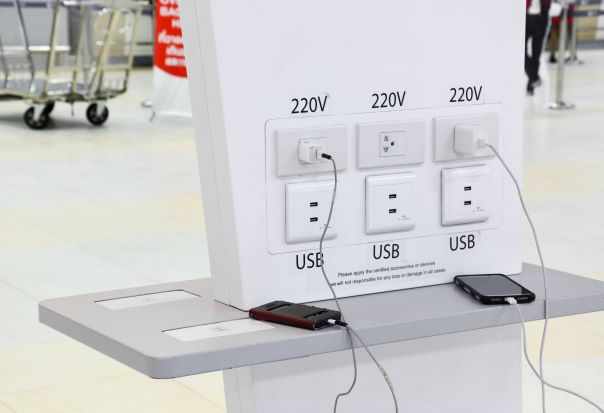Stay Safe:Warning Issued Against Public USB Charging Stations Due to Cyber Threat

Stay Safe:Warning Issued Against Public USB Charging Stations Due to Cyber Threat
The government has issued a strong caution to the public, advising against using public phone charging ports found in places like airports, cafes, hotels, and bus stands. This alert aims to inform people about the growing risk of the “USB charger scam” and urges them to be cautious when charging their devices on the move.
The USB charger scam poses a serious threat as cyber criminals take advantage of people who use public charging stations without realizing the danger. These criminals use a tactic called “juice-jacking” to compromise USB ports and launch cyber attacks on connected devices.
Juice-jacking works by allowing cyber criminals to steal sensitive data or install malware on devices plugged into compromised charging points. When people connect their devices to these compromised ports, they unknowingly expose themselves to potential data theft, malware, or even ransom demands.
Safety tip of the day: Beware of USB charger scam.#indiancert #cyberswachhtakendra #staysafeonline #cybersecurity #besafe #staysafe #mygov #Meity #onlinefraud #cybercrime #scam #cyberalert #CSK #cybersecurityawareness pic.twitter.com/FBIgqGiEnU
— CERT-In (@IndianCERT) March 27, 2024
To protect against such threats, it’s important for individuals to take proactive steps:
- Use Electrical Wall Outlets or Carry Personal Chargers/Power Banks: Whenever possible, use traditional electrical outlets or carry your own charging cables or power banks to avoid public USB charging stations.
- Secure Your Device and Avoid Connecting to Unknown Devices: Implement security measures like using a PIN or password to lock your device and avoid connecting to unfamiliar or untrusted devices to reduce the risk of unauthorized access or data compromise.
- Consider Charging Your Device When It’s Turned Off: Charging your device while it’s powered off can lower the risk of cyber attacks as it reduces exposure to external threats.
In case of encountering cyber fraud or suspicious activity, individuals are urged to report incidents promptly. They can do so by visiting www.cybercrime.gov.in or contacting authorities at 1930.










